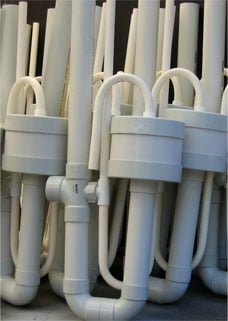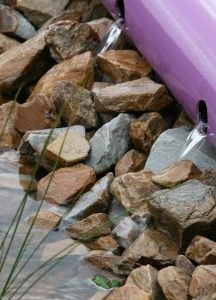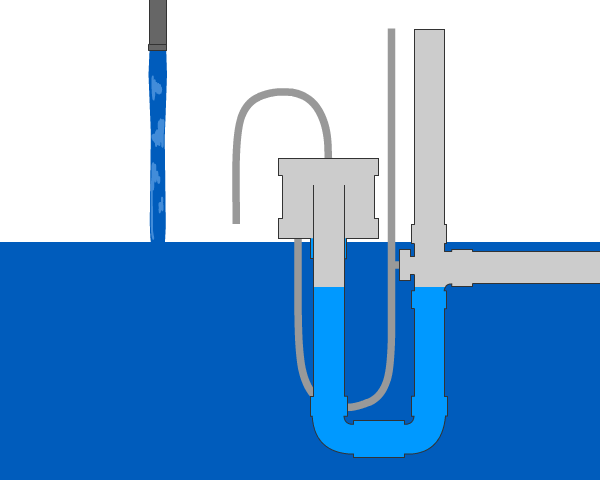Installation and operation of automatic dosing siphons

Dosing of secondary and tertiary wastewater treatment areas has been used in the USA for over 20 years and is becoming acccepted in australia
Low pressure dosing, using automatic dosing siphons, involves a supply manifold that leads to perforated distribution laterals; heads down to 500mm have been used
High pressure dosing usually requires a pump to supply heads of 10m or more to operate proprietary emitter systems or to pump to treatment areas above the dosing chamber on sites with limited options; automatic dosing siphons can also be used where there is sufficient fall below the dosing chamber
Dosing achieves a more uniform distribution over the treatment area, preventing progressive failure along the perforations of distribution laterals
Difficult site conditions can be overcome
The dose-rest cycle maintains aerobic conditions and significantly prolongs the life of the treatment area
Converts irregular small flows into calibrated doses for uniform distribution
Low initial capital cost
Very little or no maintenance
No moving parts
No requirement for electrical power
Not affected by power outages
Proven technology over 100 years old
Siphons can only be used where adequate fall can be achieved between the outlet of the dosing siphon and the manifold of the treatment area
